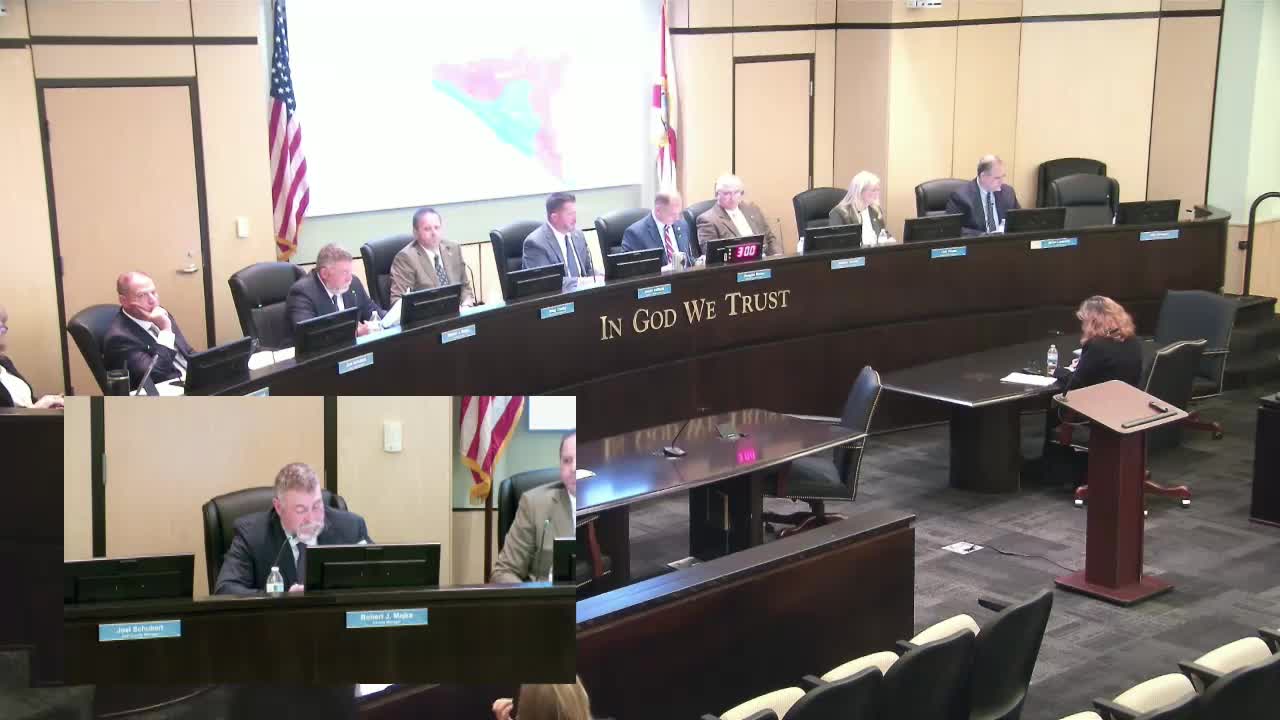Bay County approves up to $2.2M for voluntary overtime to reduce fire-station outages, directs rotating closures and quarterly reports
Get AI-powered insights, summaries, and transcripts
Subscribe
Summary
The Bay County Commission voted Nov. 4 to make up to roughly $2.2 million available for voluntary overtime to reduce the number of times two county fire stations are taken out of service, and directed staff to create a rotating closure schedule and deliver quarterly status reports.
The Bay County Board of County Commissioners on Nov. 4 authorized making up to roughly $2.2 million available to fund voluntary overtime for emergency‑services personnel to reduce the frequency that the Sandhills and Bear Creek fire stations are placed out of service.
Miranda Griffin of the budget office presented a proposed budget amendment that would fund overtime for the equivalent of 18 positions for an initial eight‑month window, while the county continues hiring to fill newly authorized positions. Griffin said the analysis used an eight‑month onboarding horizon and noted that using the full amount would reduce MSTU fire reserves to about $400,000 from earlier targets.
County management and Fire Chief Lindworth described staffing pressures driven largely by emergency medical service demand, signing bonuses and recruitment efforts, and the need for dual certification to increase operational flexibility. Chief Lindworth and county staff said the department currently averages about eight ambulances per shift and needs to reach 14 ambulances by workload standards; the shortage has prompted moving personnel between stations and taking some stations out of service to prioritize urban coverage and ambulance availability.
Commissioners asked about alternatives to overtime, including hiring 18 full‑time personnel (long lead time), rotating outage schedules, increased volunteer recruitment and incentives, and the structure of subcontracted ambulance services. Several commissioners expressed a preference for rotating closures when shortages occur so the burden is shared countywide; others urged improving communications with residents in affected areas.
During the motion, the board approved the upper end of the overtime funding presented (not to exceed the amount described by staff, approximately $2.2 million), directed staff to develop a rotating station‑closure schedule to be used when staffing shortfalls occur, and requested quarterly status reports on hiring, overtime expenditure and station availability. The vote was unanimous on the roll call.
Staff said the overtime allocation is intended as an interim measure while the county fills newly authorized positions; hiring, onboarding and conversion to alternative shift schedules (such as a 224/96 rotation) remain part of the longer‑term plan. Staff also noted volunteers and certification pathways as potential supplements, and said the county is willing to pay for required training/certification costs where appropriate and budgeted.
The board’s motion does not itself change long-term staffing policy or permanently alter the MSTU or general-fund structures; those actions would require subsequent budgetary or policy decisions.
